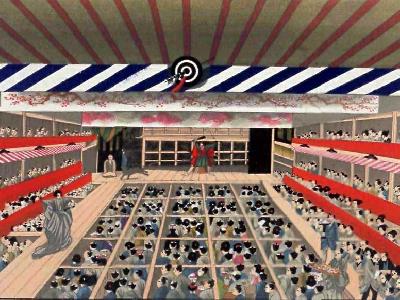歌舞伎 Kabuki Kabuki
|
Kabuki is one of Japan’s theatrical arts characterized by rhythmic dialogue, stylized acting, music, and dancing. The origin of the word kabuki comes from kabukimono (outlaws) in the Edo period, who wore unusual or bizarre dresses and behaved conspicuously. Although its history having begun in the late 16th century, Kabuki went through various changes and finally during the Genroku era (1688-1703) thrived as the entertainment for chomin (commoners). Most of the plays performed at present are the remainders of kabuki-kyogen (scenarios) which were first written in the Edo Period. The plays depict historical facts and events as well as the life of the commoners. Each play has been handed down by a particular family of actors as the familiy’s specialty. The name of the honorable families has been taken over by the principle of family inheritance or the adoption of a kinsman or an apprentice. The Kabuki art and the formula of representation has been handed down by the sistem of the succession of the name.














